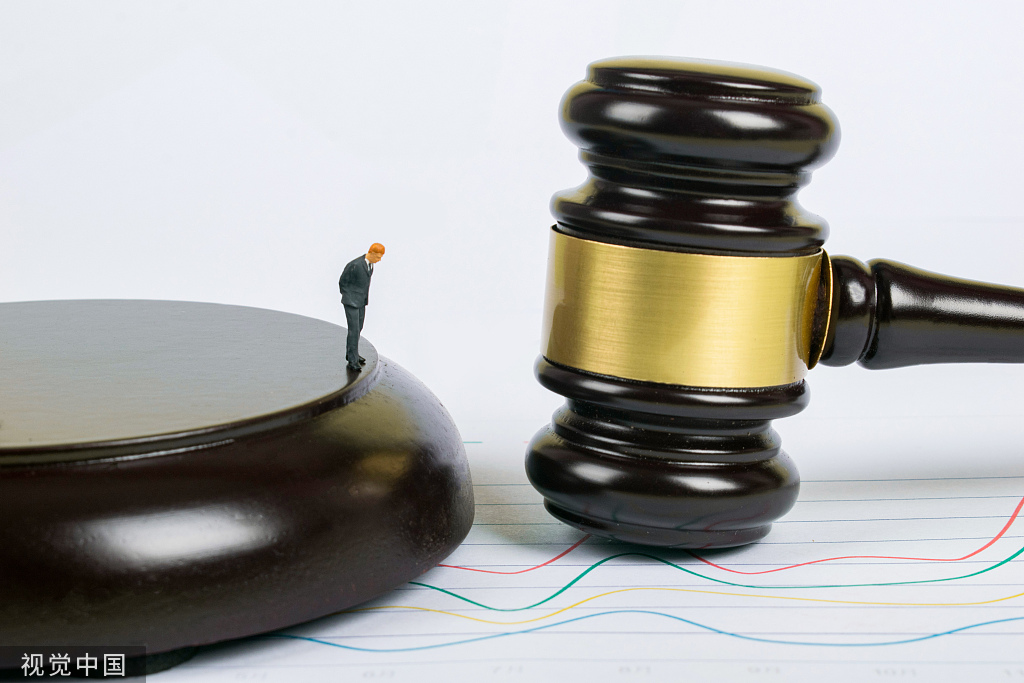Political advisors call for wider dispute inclusion of arbitration laws


The jurisdiction of China's arbitration authorities should be further expanded to include more disputes, such as those involving intellectual property rights, international investment, sports and anti-monopoly, national political advisors suggested.
Speaking at a bi-weekly seminar earlier this week to discuss revising the country's laws on arbitration, they said as China has already become a major trading partner for many countries across the world, arbitration has become a vital alternative to litigation in commercial disputes between its businesses and global companies.
The country's Arbitration Law, which came into force on Sept 1,1995, is being discussed by the public after the Ministry of Justice released proposed revisions to the Arbitration Law for public consultation on July 30, 2021.
With the in-depth development of the market economy and the deepening of reform and opening-up, the international competitiveness of arbitration does not meet the needs of foreign trade compared with the requirements for high-quality growth in the field of arbitration, said Xu Liquan, deputy head of the Committee on Social and Legal Affairs of the National Committee of the Chinese People's Political Consultative Conference (CPPCC), China's top political advisory body.
New types of disputes such as international investment, intellectual property, anti-monopoly, and sports have different characteristics from traditional commercial disputes, therefore traditional commercial arbitration procedures cannot be fully applied, and arbitration procedures need to be set up according to categories, said Liu Zhenyu, a member of CPPCC National Committee and former vice-minister of justice.
Liu suggested that the Arbitration Law should make general provisions on the procedures generally applicable to commercial arbitration, and make in-principle provisions on special arbitration procedures that need to be applied in specific fields such as international investment, intellectual property, anti-monopoly, sports and other areas, or authorize arbitration institutions to make provisions in the arbitration rules.
"I think it is necessary and important to widen the arbitration scope to include disputes in certain fields, such as intellectual property, sports, and international investment. The solutions to sports disputes require professional knowledge in both sports and law. Usually, judges in litigation are unable to handle these cases," said Wang Yanxia, a CPPCC National Committee member and deputy director of the sports department of the Beijing Organizing Committee for the 2022 Olympic and Paralympic Winter Games.
She said it is meaningful to apply arbitration to solve disputes and protect athletes' rights. Realizing the nature of arbitration as a highly efficient and effective way to solve disputes, athletes are enabled to extend their professional sports span.
The political advisors reiterated that the revision should be carried out in light of the characteristics and development trends of arbitration, combining China's reality and international practices.
In addition to further promoting institutional reform and development, and strengthening the independence, professionalism and credibility of arbitration institutions, Jiang Ping, a member of the CPPCC National Committee and former vice-chairman of the CPPCC Shanghai municipal committee, suggested the country's legislators and related government branches draw on the experience of international common rules to improve the global competitiveness of China's arbitration legal system.
They need to attach great importance to strengthening friendly judicial support and appropriate oversight over arbitration, in particular adhering to the internationally accepted procedural standards for judicial review, carefully studying the integration of domestic arbitration with foreign-related arbitration, and vigorously safeguarding the independence of arbitration, said Jiang.
The CPPCC National Committee members also advised a checks-and-balances system among the decision-making, executive and supervision departments within the arbitral institutions to enhance public trust.
It is also suggested to deepen international exchanges and cooperation in the field of arbitration with a focus on countries and regions participating in the Belt and Road Initiative.




































